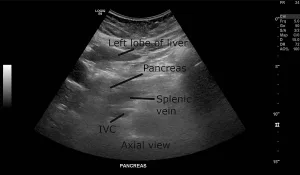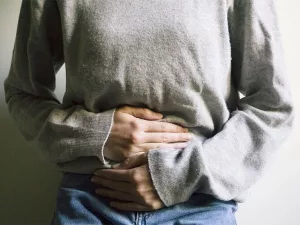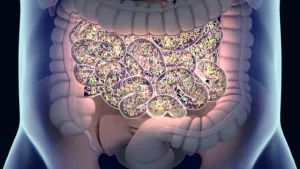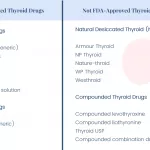Quick Answer
Gut health chemicals are the tiny molecules—like short‑chain fatty acids, hydrogen sulfide, and plant‑derived phytochemicals—that your gut microbes create or transform. When they’re in balance they protect your gut lining, modulate immunity, and even lift your mood. When the balance tips—because of too‑many pesticides, PFAS “forever chemicals,” or a poor diet—those same chemicals can become harmful.
Want a fast‑track plan? Load up on fiber‑rich foods, choose a diversified probiotic, and cut down on pesticide‑laden produce. The next sections will show you exactly why and how.
What Are Chemicals
Short‑Chain Fatty Acids (SCFAs)
SCFAs are the poster children of gut health chemicals. The three most common—acetate, propionate, and butyrate—come from the fermentation of indigestible fiber by bacteria. Butyrate, for example, fuels colon cells (colonocytes) and powers their anti‑inflammatory pathways. Research from Dr. Mercola’s 2025 article shows butyrate can halt cancer‑cell growth and calm gut inflammation.
Hydrogen Sulfide (H₂S)
H₂S is a gas‑transmitter produced both by our own enzymes and by gut microbes such as Desulfovibrio. In low amounts it helps regulate gut motility, but excess H₂S speeds up transit, often leading to diarrhea and nutrient malabsorption. Chris Masterjohn’s review explains this dual nature.
Phytochemicals & Post‑biotics
Plants give us polyphenols, flavonoids, and other phytochemicals. Gut bacteria convert many of these into bioactive post‑biotics that modulate immune tone, reduce oxidative stress, and even influence brain chemistry.
Forever Chemicals (PFAS)
Per‑ and polyfluoroalkyl substances (PFAS) are synthetic “forever chemicals” that linger in the environment and accumulate in food. They can disturb microbial composition, lowering SCFA output and increasing gut inflammation.
How They Work
Gut Barrier & Immune Modulation
SCFAs tighten the gut’s seal. They boost proteins like occludin, claudin‑1, and ZO‑1, making the intestinal wall less “leaky.” Butyrate also raises MUC‑2 production, fortifying the mucus layer that guards against invaders.
Metabolic Health
Propionate and butyrate improve insulin sensitivity and stimulate GLP‑1 release, which helps regulate appetite. A 2023 Nutrients review links higher SCFA levels with better blood‑sugar control.
Brain‑Gut Axis
Butyrate crosses the blood‑brain barrier in small amounts and can influence mood‑related pathways. The same Mercola piece notes lower butyrate‑producing bacteria in people with depression, bipolar disorder, and anxiety.
Cancer Prevention
Laboratory studies show butyrate triggers apoptosis (programmed cell death) in colorectal cancer cells, acting like a microscopic security guard.
Toxicity When the Balance Shifts
Too much H₂S leads to faster gut transit and nutrient loss. PFAS and pesticide residues suppress butyrate‑producing microbes, reducing the protective SCFA pool and fostering chronic inflammation.
Pesticides & Forever Chemicals
Gut Microbiome & Pesticide Exposure
Modern agriculture often leaves trace pesticide residues on fruits and veg. Those chemicals can wipe out beneficial bacteria, especially the ones that churn out butyrate. Our own gut microbiome pesticides guide breaks down which groups are most vulnerable.
Probiotics & Pesticide‑Resistant Strains
Some probiotic strains, like certain Lactobacillus and Bifidobacterium species, are more resilient to pesticide stress and can help rebalance the ecosystem. Learn more in the probiotics pesticides article.
Pesticide Toxicity in the Gut
When pesticides linger, they generate oxidative stress, impair SCFA transporters, and increase gut permeability. This cascade is detailed in our pesticide toxicity gut page.
PFAS – The “Forever” Threat
PFAS are not broken down by metabolism; they accumulate in tissue and can disrupt the delicate chemistry of the gut. Studies associate PFAS exposure with lower acetate and propionate levels, worsening metabolic health.
Build Protective Profile
Fiber‑Rich, Phytochemical‑Heavy Diet
Think of fiber as the fuel for your gut’s chemical factory. Legumes, whole grains, cruciferous veggies, and berries supply the resistant starch that bacteria love. The more diverse the fiber, the broader the range of SCFAs produced.
Targeted Pre‑ and Pro‑biotics
Prebiotic fibers like inulin, chicory root, and resistant starch feed butyrate‑producing microbes. Pair them with a probiotic that contains proven butyrate promoters (e.g., Faecalibacterium prausnitzii) for a one‑two punch.
Limit Pesticide & PFAS Intake
Wash produce thoroughly, peel when possible, and prioritize organic options for high‑pesticide items like strawberries and spinach. Swap out non‑stick cookware for stainless steel to cut PFAS exposure.
Consider Supplementary Butyrate
If dietary changes are hard, a gentle butyrate supplement (often as sodium butyrate) can raise colonic levels. Clinical trials report reduced IBS symptoms and improved gut barrier function.
Lifestyle Boosters
Regular movement, adequate sleep, and stress‑management techniques (like mindfulness) keep your gut enzymes humming, ensuring efficient H₂S clearance and SCFA synthesis.
Real‑World Stories
John’s IBS Turnaround
John, a 38‑year‑old graphic designer, battled IBS‑D for years. After adding 20 g of resistant starch (via green banana flour) to his breakfast, his stool frequency normalized and his bloating faded. A stool test later showed a 30 % rise in butyrate levels.
Expert Insight
Dr. Maya Patel, gastroenterology professor at Stanford, says, “SCFAs are the lingua franca between our diet and immune system. When you starve the microbes, you silence that conversation.” She stresses that balance—not eradication—is the goal.
Research Snapshot
Below is a quick table of human studies linking SCFA interventions to health outcomes:
| Study | Intervention | Key Outcome |
|---|---|---|
| Frontiers 2016 | High‑fiber diet | ↑ Butyrate, ↓ inflammation markers |
| Nutrients 2023 | Butyrate supplement (4 g/day) | Improved insulin sensitivity, lower fasting glucose |
| Mercola 2025 | Resistant starch + probiotic | Reduced IBS pain, better mood scores |
Potential Pitfalls
Throwing a massive probiotic blend at the problem without fiber is like buying a car without gasoline—it won’t run. Always pair probiotics with prebiotic fibers to give the microbes something to eat.
Quick Reference Cheat Sheet
| Gut Health Chemical | Primary Source | Benefit | Risk When Imbalanced | How to Optimize |
|---|---|---|---|---|
| Butyrate (SCFA) | Fiber fermentation | Colonocyte energy, anti‑inflammatory | Excess → diarrhea | Resistant starch, inulin, probiotic butyrate‑producers |
| Propionate | Fermented carbs | Regulates glucose, appetite | Rare over‑production | Whole grains, oats |
| Acetate | Fermentation & diet | Systemic energy, hormone balance | None at normal levels | Diverse carbohydrate intake |
| Hydrogen Sulfide (H₂S) | Microbial & host enzymes | Signaling, vasodilation | High → fast transit, nutrient loss | Sulfur‑rich foods (garlic, onions), balanced microbiome |
| PFAS (forever chemicals) | Processed food, cookware | None (toxic) | Endocrine disruption, cancer risk | Choose organic produce, avoid non‑stick pans |
| Pesticide residues | Conventional agriculture | None (toxic) | Dysbiosis, ↓ SCFA production | Wash thoroughly, prioritize organic, supportive probiotics |
Conclusion
Gut health chemicals are both allies and adversaries. When you feed the right microbes with fiber, choose resilient probiotics, and keep synthetic intruders like pesticides and PFAS at bay, those chemicals become powerful protectors of your gut, brain, and metabolism. It’s not about eliminating them—just about steering them toward the beneficial side.
Take the first step today: add a handful of berries to your breakfast, sip a cup of kefir, and give your fruits a good wash. Your gut will thank you, and you’ll feel the difference in energy, mood, and overall wellbeing. If you’re curious about how pesticides specifically affect your microbiome, check out our deep dive on gut microbiome pesticides, or learn which probiotic strains can counteract those effects in probiotics pesticides. For a closer look at the biochemical fallout of pesticide exposure, our pesticide toxicity gut article has all the details.
Remember, your gut is a living community. Treat it with respect, feed it well, and it will reward you with health that radiates from the inside out.

























Leave a Reply
You must be logged in to post a comment.